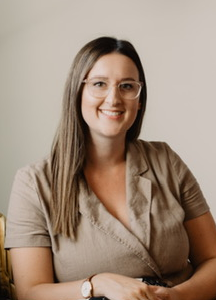Choose a mortgage to meet your needs

When you are buying a home, the type of mortgage you choose, the down payment, the amortization period and even the payments make a difference. To get you started, here is a review of the most common types of mortgages.
Assumable mortgage
By assuming the existing mortgage, you may be able to save on the usual mortgage
fees such as appraisal and CMHC fees. You will save time, since you do not
have to negotiate to arrange financing from another lender and the existing
mortgage on the home may be less than the current market rates. Alberta is the only province in Canada which allows for as assumable
mortgage. You simply apply cash that has already been paid toward the
mortgage and resume payments. Some institutions may require you to qualify.
Vendor take back
With a VTB, the vendor also becomes a lender, holding all or some of the
mortgage. Sometimes the vendor will offer this loan at lower than bank
rates.
Conventional mortgages
With a conventional mortgage, you need a minimum down payment of at least
25% of the purchase price. These mortgages have the lowest carrying costs and do not have to be insured against default. You are responsible for
a property appraisal and legal fees registering the mortgage and completing
the purchase
Low down payment insured mortgage
Low down payment mortgages - with down payments as low as 5% - must be
insured to cover potential default of payment and their carrying costs.
Therefore, this mortgage is higher than a conventional mortgage as they
include the insurance premium. Low down payment mortgages are often referred
to as National Housing Act (NHA) or High Ratio mortgages. Both Canada
Mortgage and Housing Corporation [CMHC] or GE Capital Mortgage Insurance
Company (Canada) [GE] offers default insurance. You are responsible for
appraisal and legal fees and the application fee for the insurance.
Closed, open & convertible mortgages
With a closed mortgage, the interest rate is locked in for the full term
of the mortgage. You must pay a fee to renegotiate the interest rate or
pay off the balance before the end of the term. Closed mortgages are the
most effective when interest rates may be rising and for people who are
not moving in the short term. First time home buyers find them especially
appealing, as mortgage payments are established for a set time frame.
The interest rate for closed mortgages may be lower than for open mortgages.
These mortgages are available in terms from six months to 25 years.
Flexibility is a prime advantage of an open mortgage. They can be repaid either in part or in full at any time, without incurring any additional costs. This mortgage, however, is generally available for a term of six months or one year. Interest rates for open mortgages may be higher than for closed mortgages because of the added flexibility.
In these two situations, you could save a tremendous amount on interest
costs: 1) when you're planning to sell your home soon without buying another and you speculate that interest rates are falling 2) when you think you
may be able to pay down a considerable portion of your mortgage debt in
the near future.
A convertible mortgage is a fixed-rate mortgage that provides the same
security as a closed mortgage. It can also be converted to a longer, closed
mortgage at any time without cost.
Fixed or variable?
With a fixed-rate mortgage, the interest rate is locked in for the full
term of the mortgage. Buyers know the payment amount throughout the entire
term. Fixed-rate mortgages could be either open (could be paid off at
any time without costs) or closed (costs apply if paid off prior to maturity).
With a variable-rate mortgage (sometimes referred to as a floating mortgage), mortgage payments are set for a term of one to two years or longer although interest rates may vary during this time.
If interest rates go down, more of the payment is applied to reduce the
principal. If rates go up, more of the payment is applied to interest
payment. Variable-rate mortgages may be open or closed. With a variable
rate mortgage a buyer has the flexibility to maximize upon falling interest
rates and to convert to a fixed-rate mortgage at any time.
If you suspect interest rates will rise, you may want to lock in your
fixed rate for a long time. If you speculate that interest rates are headed
downward, a shorter time may be a good choice.
Prior to signing any mortgage document, you will want to ensure you understand the conditions, terms, payment schedules and consequences of non-payment. Also be sure that your lawyer, accountant and even your Real Estate Professional has reviewed the documents so you are protected against any surprises.

